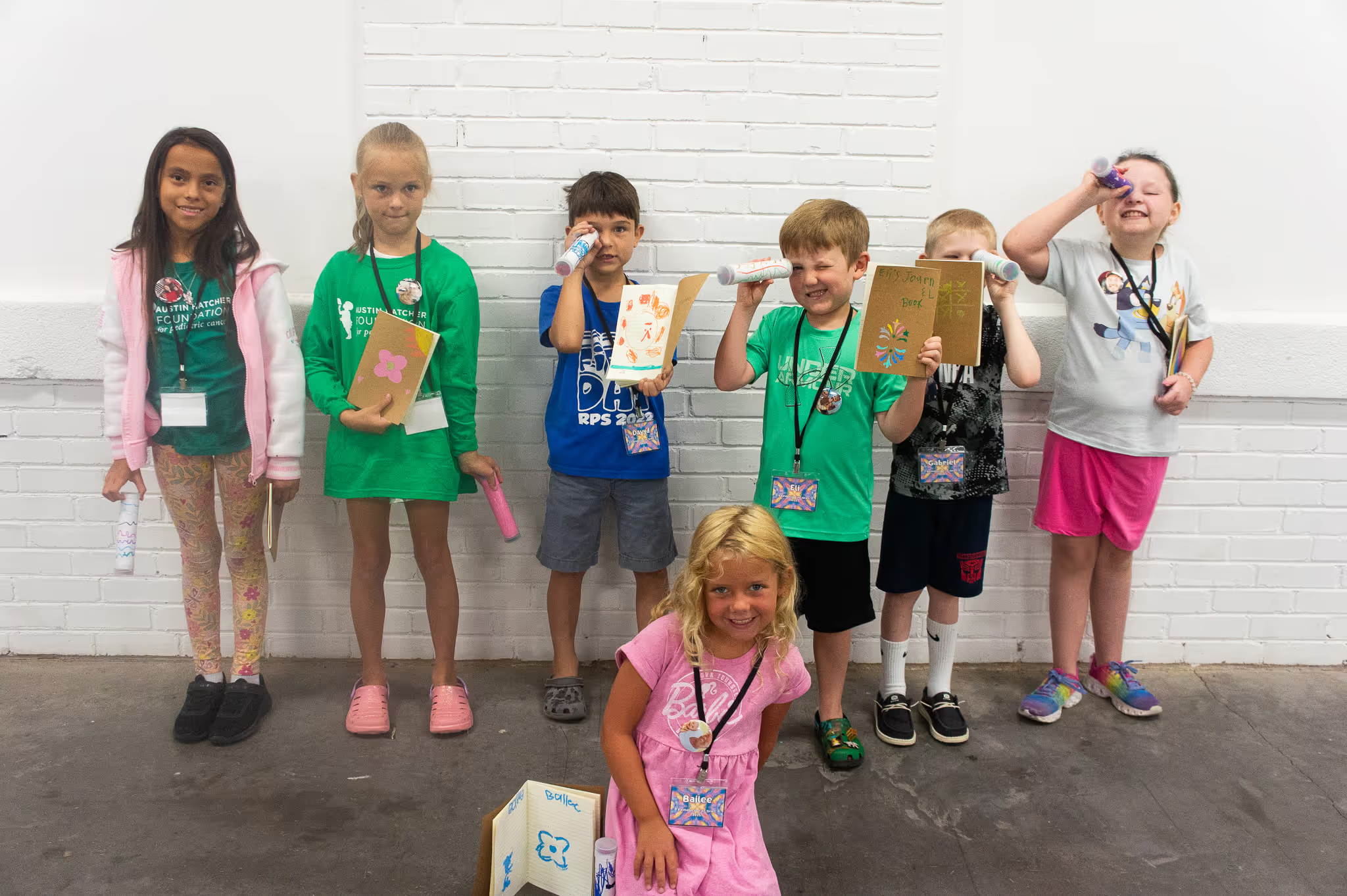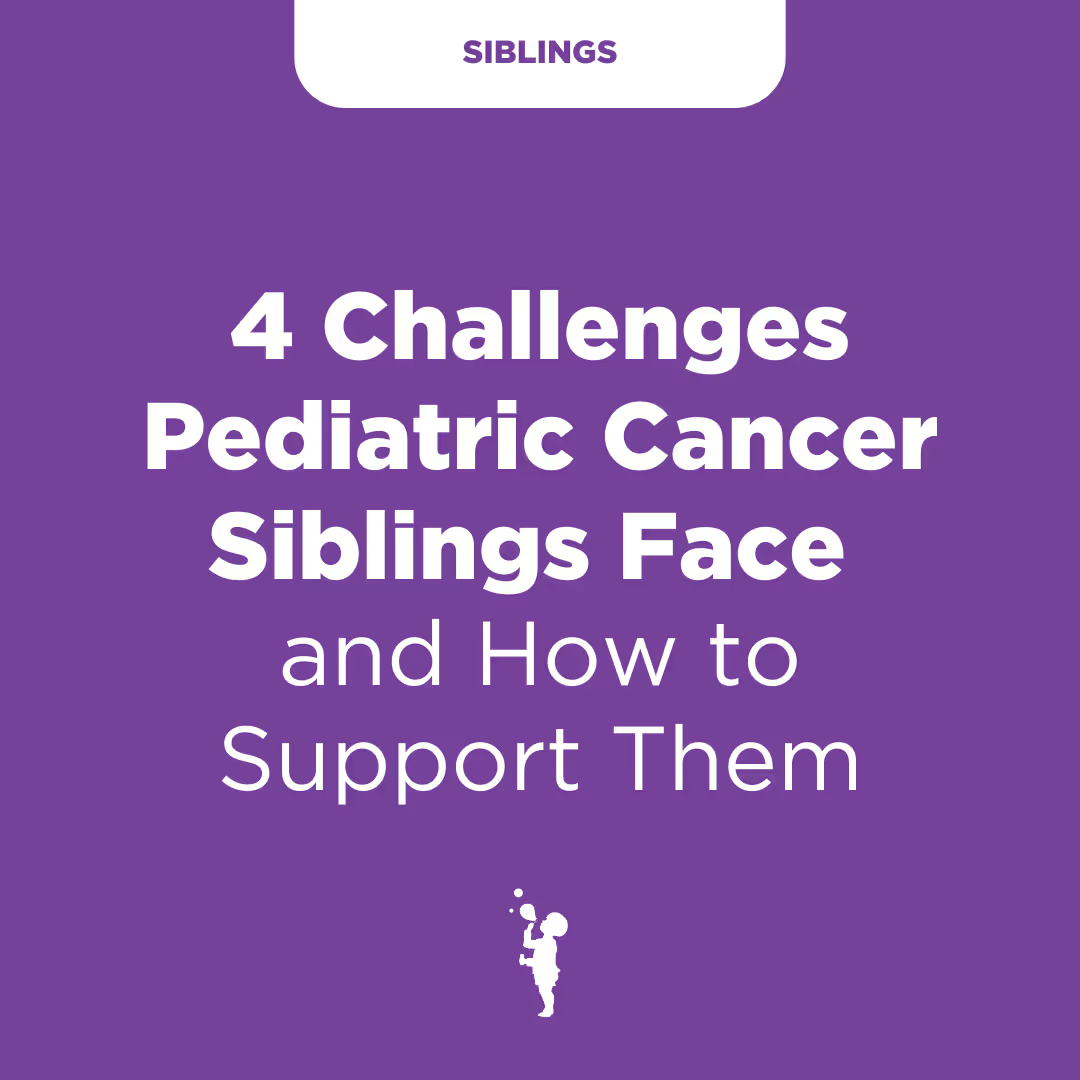The Forgotten Siblings: Supporting Brothers and Sisters of Children with Cancer
When a child is diagnosed with cancer, the entire family’s world changes in an instant. Doctors, hospital visits, treatment schedules, and uncertainty take center stage. Understandably, much of the family’s energy and attention is focused on the child who is ill. Yet, standing quietly in the background are the siblings – brothers and sisters who are profoundly affected but often overlooked.
As a psychotherapist who works with families facing pediatric illness, I’ve seen firsthand how siblings can feel invisible in the midst of crisis. While parents are juggling unimaginable stress, siblings are navigating big feelings of their own: guilt, fear, jealousy, and loneliness. They need just as much compassion and support.
The Invisible Struggle of Siblings
Siblings of children with cancer often carry heavy emotional loads:
- Guilt: for being the “healthy” sibling, for resenting the attention their brother or sister receives, or even for not feeling as sad or worried as they think they “should”’
- Anxiety: about not knowing what’s really happening, feeling worried when a parent/caregiver leaves for hospital visits (separation anxiety), or struggling with changes in family routines and expectations.
- Loneliness: parents/caregivers are often at the hospital or emotionally consumed, leaving siblings feeling forgotten.
- Fear: of losing their brother or sister, of family life changing forever, of the unknown.
- Anger or resentment: toward the illness, the disruption in routines, or sometimes toward their sibling.
Signs a Sibling May Be Struggling
It is important to keep an eye out for these warning signs:
- Social withdrawal.
- Physiological responses (i.e., upset tummy or headaches).
- Regression (i.e., bedwetting, baby talk, clinginess, tantrums).
- Overachieving or “acting perfect” to avoid being a burden.
- Any noticeable behavioral changes.
The Role of Parents and Caregivers
Parents and caregivers are dealing with a great deal and often feel like they are being pulled in multiple directions. The reality is that you can only do so much. Having intentional acts of attention makes a huge difference.
- One-on-one time: Even if you only have 10 minutes of undivided attention to give, quality time helps siblings feel seen and valued.
- Rituals/Routines: Having a consistent ritual or routine before bed or before school can help siblings feel loved and cared for.
- Open conversations: Being open and honest, using appropriate language, can help lessen anxiety or worries in siblings.
- Validation: Telling the siblings that their feelings are welcome and understandable.
- Modeling: Talking about feelings and demonstrating how to take care of yourself when you’re sad, mad, confused, etc.
Practical Ways to Support Siblings
In the midst of everything, it may feel daunting to find practical ways to support the siblings. Here are a few suggestions:
- Get them involved: Engage the sibling in age-appropriate ways (drawing cards, helping with small tasks, decorating the hospital room, visiting when possible).
- Peer support: Get involved in sibling groups, camps, church groups, etc.
- Collaborate with schools/teachers: Inform teachers and school counselors of your family’s situation, so they can offer support.
- Consistency: Routines help. Wherever you can, try to keep the siblings' schedule as normal as possible.
How Therapists Can Help
Psychotherapy provides siblings with a safe space to express what they may not say at home. Therapy doesn’t always mean sitting in a chair and talking; for kids, therapy often resembles playtime or creative activities. Here are a few ways that psychotherapy can help your child or teen:
- Finding words for big emotions: Kids may act out because they don’t know how to say they’re scared, jealous, or sad. With gentle guidance, therapy helps them put those feelings into words.
- A safe space for everyone’s feelings: Sometimes siblings keep their worries to themselves so they don’t “add more stress.” Family therapy helps them feel it’s safe to speak up and be heard.
- Keeping communication open: Families learn ways to talk honestly, even about hard things, so no one feels left out of the journey.
- Strengthening bonds: By hearing one another’s experiences, families often leave sessions feeling closer, more connected, and more equipped to face challenges as a team.
Why This Matters
While a cancer diagnosis reshapes a family, siblings don’t have to be left in the shadows. With support, they can develop resilience, empathy, and a strong sense of connection. By acknowledging their struggles and giving them space to heal, we ensure that the whole family, not just the child in treatment, is cared for.
We’re here to help.
The Austin Hatcher Foundation provides free, lifetime therapy and community for pediatric cancer patients and their families. Whether you’re a sibling, parent, or caregiver navigating feelings of fear, guilt, or isolation, our team is here to support you. If you or someone you know is a family member of a child facing cancer, request an appointment here. here.


.png)



.png)
.png)
.png)
